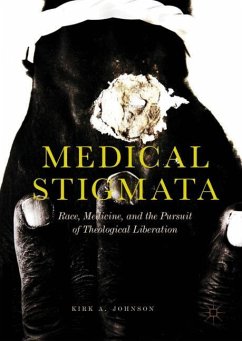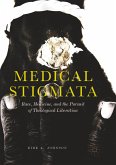This book observes the idea of race as a false representation for the cause of disease. Race-based medicine, an emerging field in pharmacology, aims to create a specialty market based on racial groups. Within this market, the drug BiDil set a precedent in this area of medicine targeting African Americans as its first racial group. Consequently, selecting African Americans as a "starter group" led to ethical questions regarding the motive behind race-based medicine within the context of the larger treatment of blacks in American medical history. This book therefore links medicine and American eugenics, examines race-based medicine's influence on the perception of the black body, traces the influence of BiDil's approval on the resurgence of race-based medicine, and assesses the black church's response to race-based medicine using black liberation theology as a means to social justice.
Bitte wählen Sie Ihr Anliegen aus.
Rechnungen
Retourenschein anfordern
Bestellstatus
Storno








